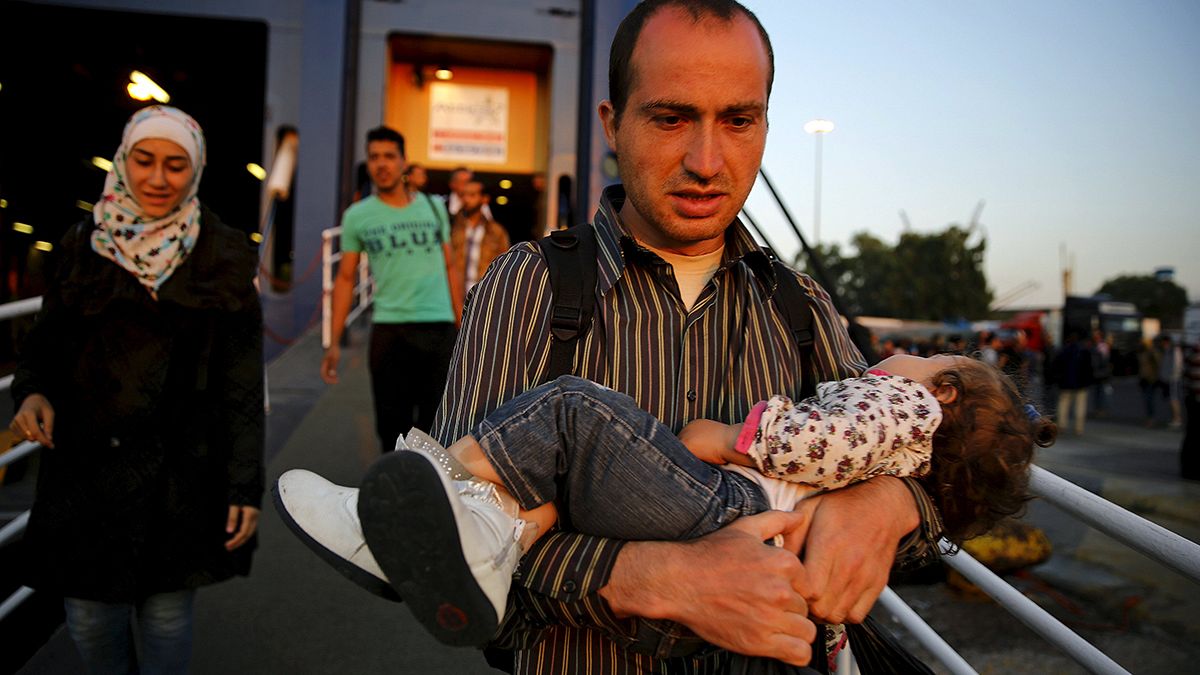Crisis-rocked Greece has overtaken Italy as the main maritime gateway for migrants trying to reach Europe, new figures have revealed. The UN’s
Crisis-rocked Greece has overtaken Italy as the main maritime gateway for migrants trying to reach Europe, new figures have revealed.
The UN’s refugee agency (UNHCR) said 68,000 people arrived by sea to Greece in the first half of this year, eclipsing Italy by 500.
Italy took three-quarters of the 219,000 migrants that arrived by water last year, but UNHCR’s latest report shows a more equal sharing of the burden.
Increased maritime arrivals to Greece could be down to new security walls being built on the Greek and Bulgarian borders with Turkey, which, according to UNHCR, is forcing migrants to take more dangerous sea crossing.
Overall sea crossing to Europe jumped from 74,850 in the first half of 2014, to 136,840 from January-June this year.
UNHCR’s report also found early evidence that the EU’s improved search-and-rescue mission in the Mediterranean was helping to save lives.
European leaders agreed in April to triple funding for the Triton mission in a bid to stem the rising number of migrant deaths at sea.
UNHCR says 1,787 died at sea in the four months to April; the number dead or missing in the last two months is 80.
continues below
Migrant sea arrivals to Italy/Greece vs Mediterranean deaths
This shows migrant sea arrivals to Italy and Greece in the first half of 2015. Migrant deaths at sea dropped sharply after EU leaders beefed-up their search-and-rescue mission in April.
Source: UNHCR
“The decline in people drowning over the past two months is encouraging; a sign that with the right policy, backed by an effective operational response, it is possible to save more lives at sea,” said António Guterres, UN High Commissioner for Refugees. “Nonetheless, we must stay vigilant. For the thousands of refugees and migrants who continue to cross the Mediterranean every week, the risks remain very real.”
Italy’s extended search-and-rescue operation, Mare Nostrum, was replaced with the Triton, a cheaper less proactive EU alternative last November.
Britain’s Home Office had claimed “ministers across Europe” were worried Mare Nostrum was encouraging people to make crossings in the “expectation of rescue”.
Yet figures revealed migrants had continued to cross the Mediterranean after the pared-back rescue mission came into force.
UNHCR said the death of 1,308 migrants in April alone sparked a global outcry, forcing the EU to act.
What impact would a Grexit have on migrant flows?
Greece, in deadlock with its international lenders over bailout conditions, could be on the brink of leaving the Eurozone.
Such a scenario would put migration pressure on Italy and Spain, according to Andreia Ghimis, an analyst from the European Policy Centre.
“For 90 percent of asylum seekers, as UN figures show, Greece is just a transition country,” said Ms Ghimis. “Therefore, Greece is not an attractive country per se. If Grexit happens, Greece would lose even more of its attractiveness.
“Grexit is likely to cause an emigration flow of Greek citizens towards other EU countries, fueling debates over the restriction of the free movement of EU citizens principle and the populist rhetoric over the so-called social benefits tourism.”
Marc Pierini, a visiting scholar at think tank Carnegie Europe , said: “Undoubtedly further austerity will impact negatively on public and private spending towards refugees. So, we might see a kind of ‘double crunch’ for Syrian refugees arriving in Greece: the deteriorating situation in Syria pushing more of them to sea, plus them receiving less when arriving in Greece.”
Ms Ghimis, asked if Greece could use the latest UNHCR figures as a bargaining chip in bailout negotiations with the EU, added: “The Greek bailout and the refugee crisis are two distinct dossiers. Also, Greece is one of the top beneficiaries of European funds set up to assist countries that are seeing disproportionately large influxes of asylum seekers.”
